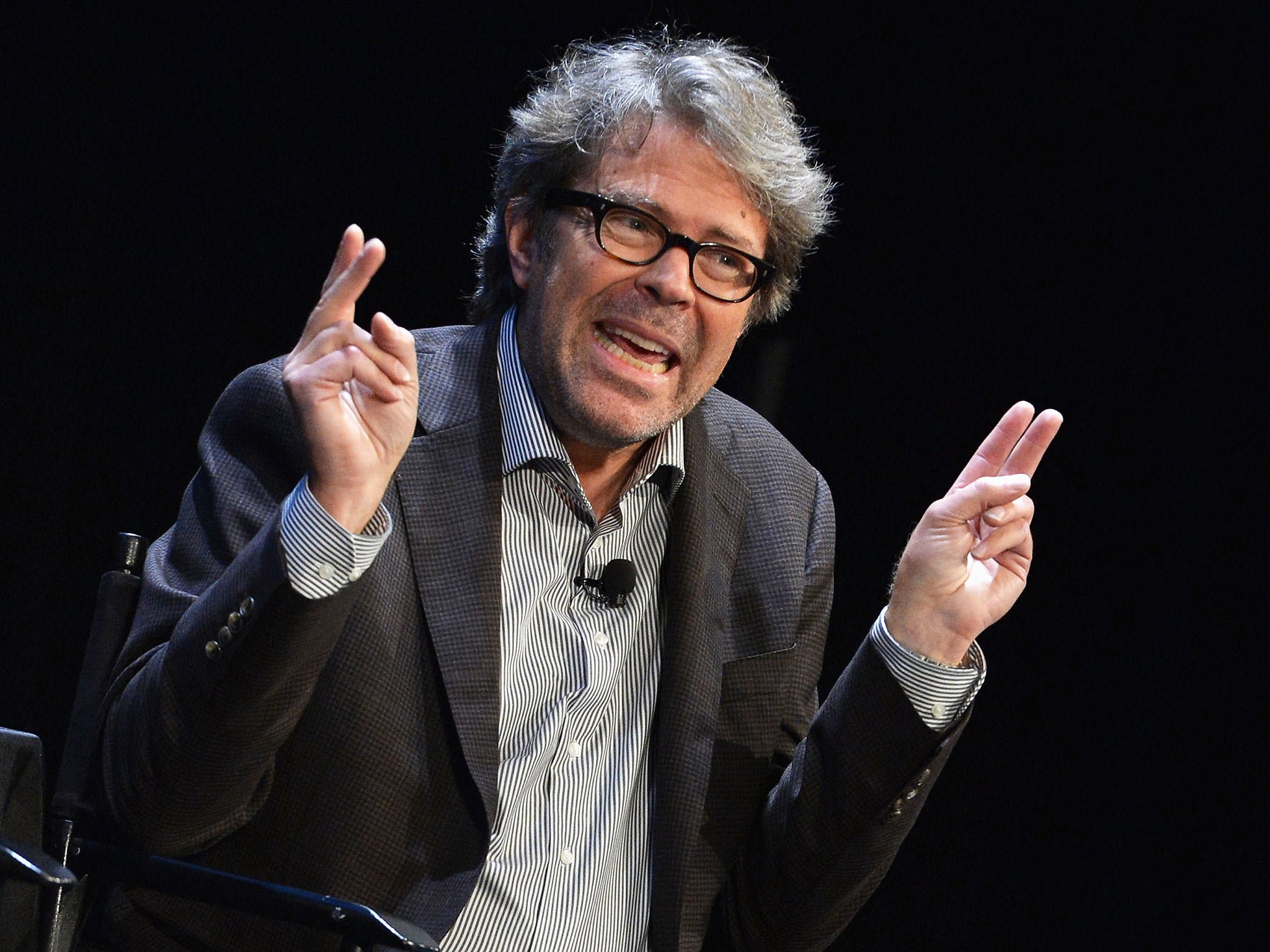If this is the year of the mega-novel, it’s going to be a very long 12 months
A harsh edit is needed. Life is too short to read bad, long books

Ker-thump. That, if you don’t recognise it, is the sound that heralds the beginning of a long, sultry summer of literary hype. Proof copies of Jonathan Franzen’s Purity, a “multigenerational American epic” (so far, so Franzen) about a young woman called Pip, and his first novel since Freedom in 2010, were posted out this week.
The novel is not published until September but, already, excitable publishing types are posting pictures of its handsome gold cover on social media and ensuring their copies poke out of the top of their bicycle baskets.
The cover is very nice – bold and graphic, like a cool birthday card you might pick up in the bookshop at Tate Modern. But when I was allowed briefly to touch The Independent literary editor’s copy, I skipped right past the cover to the back page: 576. That’s not so bad, I thought. Pretty long but it’s no Luminaries.
The fact is, 576 pages is long for a novel, but we are now apparently in the Year of the Very Long Novel so Franzen’s is small fry – a minibreak, rather than a long-haul holiday read. Death and Mr Pickwick, a prequel/ sequel to The Pickwick Papers, by Stephen Jarvis,out this week is 816 pages long. It is already being talked of as a Booker contender. Hanya Yanagihara’s A Little Life about four college friends who go to New York to seek their fortune is 736 pages. When her editor told her to cut it by a third, she directed him to Donna Tartt’s Pulitzer winner The Goldfinch (881 pages) and Eleanor Catton’s The Luminaries, at 832 pages the longest book ever to win the Booker Prize. She also sent him a photograph of her manuscript next to a 900-page issue of Vogue and Vikram Seth’s 1,400-page A Suitable Boy. The message: pages win prizes.
Almost as long as Seth’s classic – at 1,376 pages – is William Vollmann’s The Dying Grass, out in July. Meanwhile, Karl Ove Knausgaard’s My Struggle goes on. The fourth part of his six-part autobiography has just been translated into English: that’s 2,500 pages down, 1,000 or so to go. And The Mirror and the Light, the final instalment in Hilary Mantel’s Tudor trilogy, is due later this year. It will surely top 500 pages if Wolf Hall and Bring Up the Bodies are anything to go by.
So what? You shouldn’t judge a book by its weight any more than by its cover. Indeed, Kindle has made both of those elements irrelevant. Ereaders may even be to blame for the current boom in mega-novels. If people no longer weigh up which book to put in their holiday suitcase, why would publishers risk annoying their precious writers with a harsh edit?
Because sometimes, most times, a harsh edit is what is needed. Life is too short to read bad, long books. I will never get back the hours I spent skimming through the 500 meandering pages of J K Rowling’s The Casual Vacancy or Audrey Niffenegger’s The Time Traveler’s Wife, nor the weeks lost to The Goldfinch. If a book is going to be really, really long, it has to be really, really good. And quite a lot of modern novels really, really aren’t.
There is no doubt some publishing hype at work in calling 2015 the Year of the Very Long Novel. There have always been very long novels, and very short novels, and both attract attention for the wrong reasons. Plainly, it is not the number of pages that counts; it is what is on them. But in the same way that the Oscars love a biopic, book prize juries like a doorstop. The sense of achievement – on the part of the writer, and the reader – counts for a lot.
Still, there is a certain tipping point – I’d say about 500 pages, or where carrying it around all day becomes a right pain – when reading can start to feel less like a pastime than a piece of homework. It could be me and my philistine ways – I have read War and Peace, but I’m into my seventh month on The Luminaries and Middlemarch still stares at me, baleful and pristine, from my bookshelf – but a very high page count means there is always a corner of my mind thinking about how far I’ve got, always one eye on the percentage clock in the corner of the Kindle. It’s distracting.
Unless, of course, the book is truly enrapturing, like The Magus (672 pages), The Bonfire of the Vanities (752), Anna Karenina (879) and so on. But those books come along a few times in a generation, not once a month as part of a prevailing trend. The most anticipated novel of the year, the decade, even, is Harper Lee’s Go Set a Watchman, which will be published in July at 288 pages. Now there’s some hype, and a page count, I can do business with.
Join our commenting forum
Join thought-provoking conversations, follow other Independent readers and see their replies
Comments